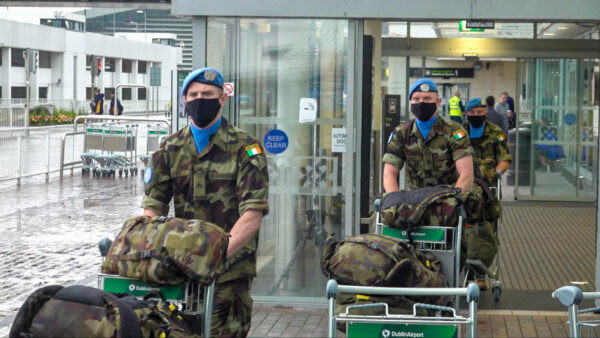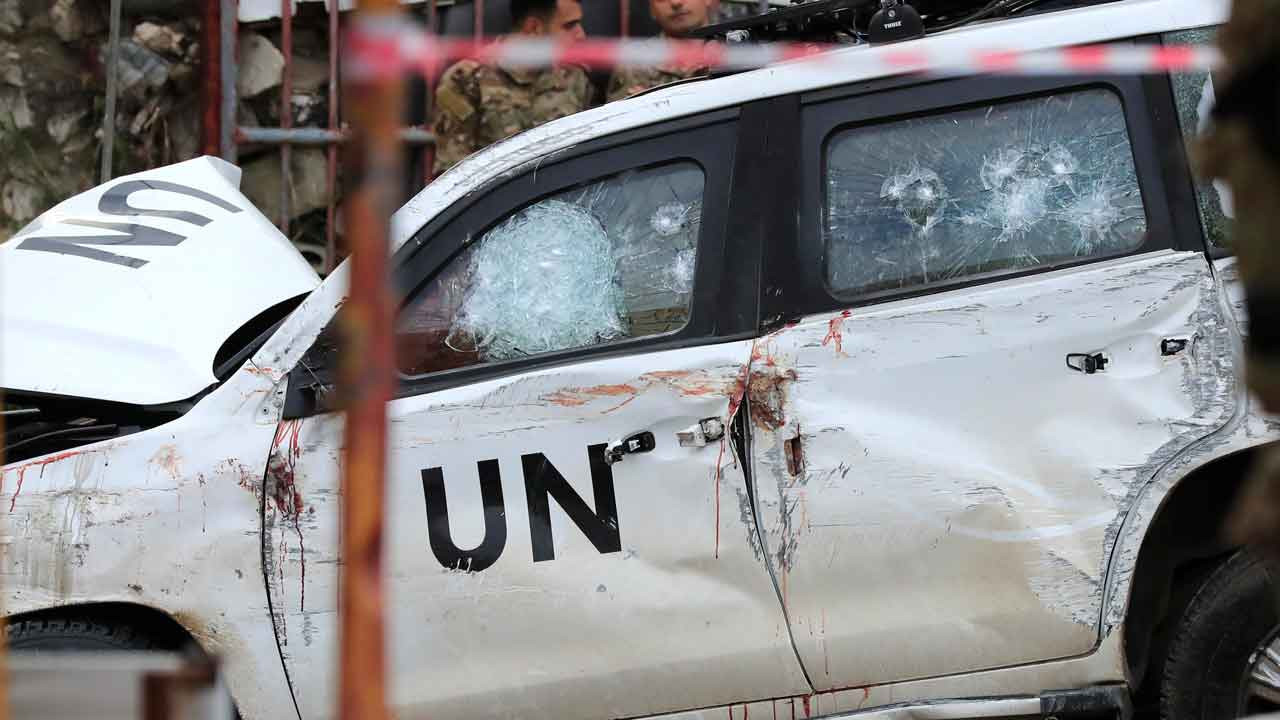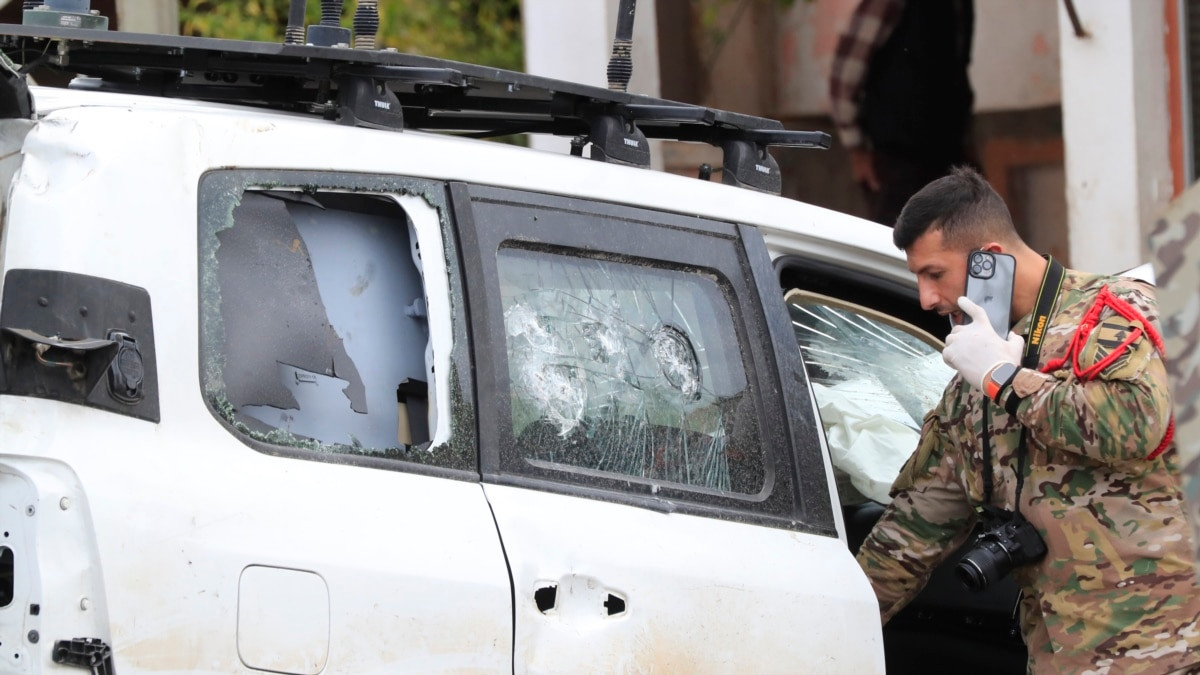There are almost 400 Irish troops stationed on peacekeeping duties in Lebanon, and they intend to remain in place even if Israel stages a full-scale invasion over the coming weeks. But where are they based, and could they be drawn into fighting?
The Defence Forces 124th Infantry Battalion, comprising 379 Defence Forces troops, is responsible for patrolling a large area in the southeast of the county, alongside personnel from Poland and Malta. The area of operations directly borders Israel and has been the site of many incoming air strikes and outgoing rocket and missile attacks in recent months.
Although the region is technically under the jurisdiction of the Lebanese army, Hizbullah is the dominant force in the area. The Irish battalion headquarters is located in Camp Shamrock, near Bint Jbeil, about 30 minutes’ drive from the border with Israel. It also mans a second smaller base nearby.
Ireland has been a contributor to the United Nations Interim Force in Lebanon (Unifil) since its foundation in 1978. During that time, 47 personnel have been killed, the most of any troop-contributing country. The most recent fatality was Pte Seán Rooney, who was killed in an ambush by Hizbullah militants in December 2022.
Unifil’s mandate is to supervise the 1978 peace deal between Israel and Lebanon and to prevent a fresh outbreak of conflict. It does this through patrols, checkpoints and community engagement. Irish troops are also responsible for monitoring part of the “Blue Line”, the de facto border between Israel and Lebanon.
Tensions Escalate on the Blue Line
There have been increasingly frequent exchanges of fire across the Blue Line since Israel launched its war in Gaza a year ago. Hizbullah has been firing rockets and missiles from near Unifil positions, and Israel has responded with air strikes or artillery fire, often forcing Irish troops to take cover in bunkers – action known as “going to groundhog”.
Last month, an Irish patrol vehicle was damaged in an Israeli air strike on a Lebanese village. There were no injuries. The pace of Israeli operations has become more significant in the last two weeks, raising fears of a full-scale invasion. Overnight on Tuesday, Israeli forces launched what it called “limited, localised and targeted ground raids” against Hizbullah targets in Lebanon.
Irish Troops Remain Safe But Vigilant
In a statement, the Defence Forces said though the situation is tense, “all Irish personnel remain accounted for and safe. They remain vigilant and are maintaining force protection measures”. Tánaiste Micheál Martin said the Irish troops are well prepared and that “Unifil is doing everything it can at command level to make sure that the peacekeepers are protected in the context of the escalation that is occurring”.
Mr Martin also confirmed troops in the Irish HQ remain supplied with fresh rations and there are “contingency supply chain arrangements” in place in the event of issues with resupplying the mission. However, wifi in the camp has gone down.
Possible Scenarios and UNIFIL’s Mandate
The Israel government has stated one of its war aims is to allow Israel citizens evacuated from areas near the Lebanese border to return to their homes. This means it would have to prevent Hizbullah from launching further rocket attacks from south Lebanon. The limited incursions this week are outside the Irish area of operations. But the Israeli Defence Forces (IDF) has been massing thousands more troops on the border, raising fears it intends to launch a full-scale invasion.
Israel may wish to push all the way up to Beruit in the north of the country, just as it did in 2006. A more likely scenario is an invasion up to Litani river, which would put Irish troops at the centre of the fighting. If this happens, Unifil freedom of movement would be severely limited and troops would probably be confined to base. This was largely what happened during previous invasions of Lebanon, including the last incursion in 2006.
It is also possible the UN will pull the mission entirely. However, currently there are no plans for Unifil to cease operations. As a peacekeeping rather than peace-enforcement force, Unifil is not mandated to use armed means to bring hostilities to an end once they have broken out. However, Irish troops are empowered to use force to protect themselves and their outposts if they come under attack.
Unifil also has a mandate to protect the civilian population. However, its power to act in the face of a full-scale invasion would probably be extremely limited.
Irish Government’s Response and Calls for De-escalation
The Tánaiste has said he is “very concerned” by Israeli troops starting “ground raids” in villages in south Lebanon, saying international humanitarian law is not being respected. Micheál Martin said the “extraordinary” impact on people by a ground incursion, potentially leaving more than a million people displaced, is “unacceptable”. Taoiseach Simon Harris said Irish citizens have been advised to leave or make arrangements to leave while it is still possible. It is believed that up to 150 Irish citizens are in Lebanon, with many opting to leave following the escalation in fighting. Both the Taoiseach and Tánaiste have reiterated Ireland’s commitment to the safety of Irish troops serving in Lebanon and have called for de-escalation in the region. The Irish government has also announced a further €1 million in aid to Lebanon, bringing the total assistance to Lebanon this year to €5 million.
A Precarious Situation for Peacekeepers
The current situation in Lebanon is precarious. While Irish troops are safe and accounted for at present, their future is uncertain as the conflict continues to escalate. The international community is urging all parties involved to de-escalate and to seek a political solution to the conflict. Only time will tell what the future holds for the Irish peacekeepers in Lebanon, but their commitment to the mission and the safety of all personnel remain paramount.



















